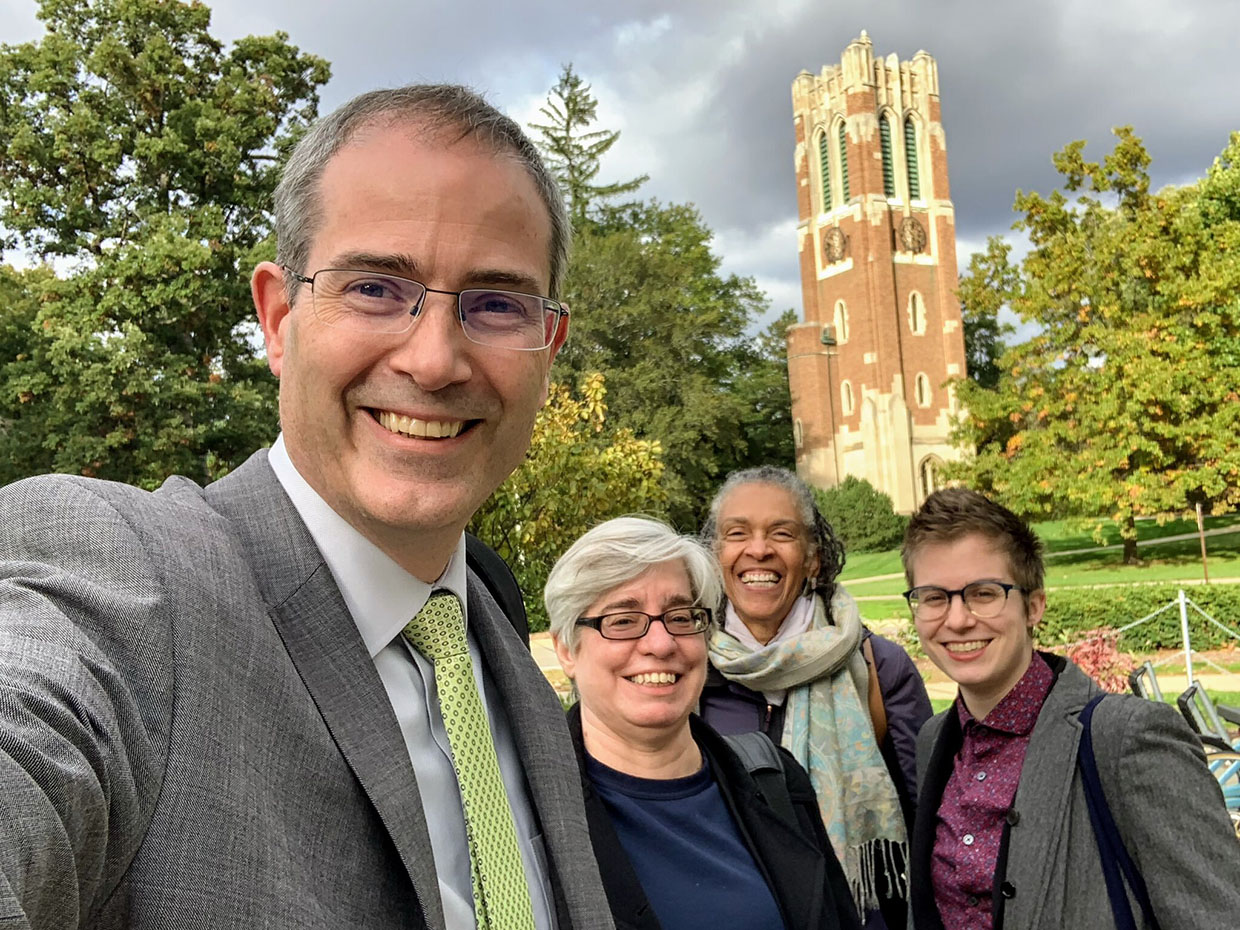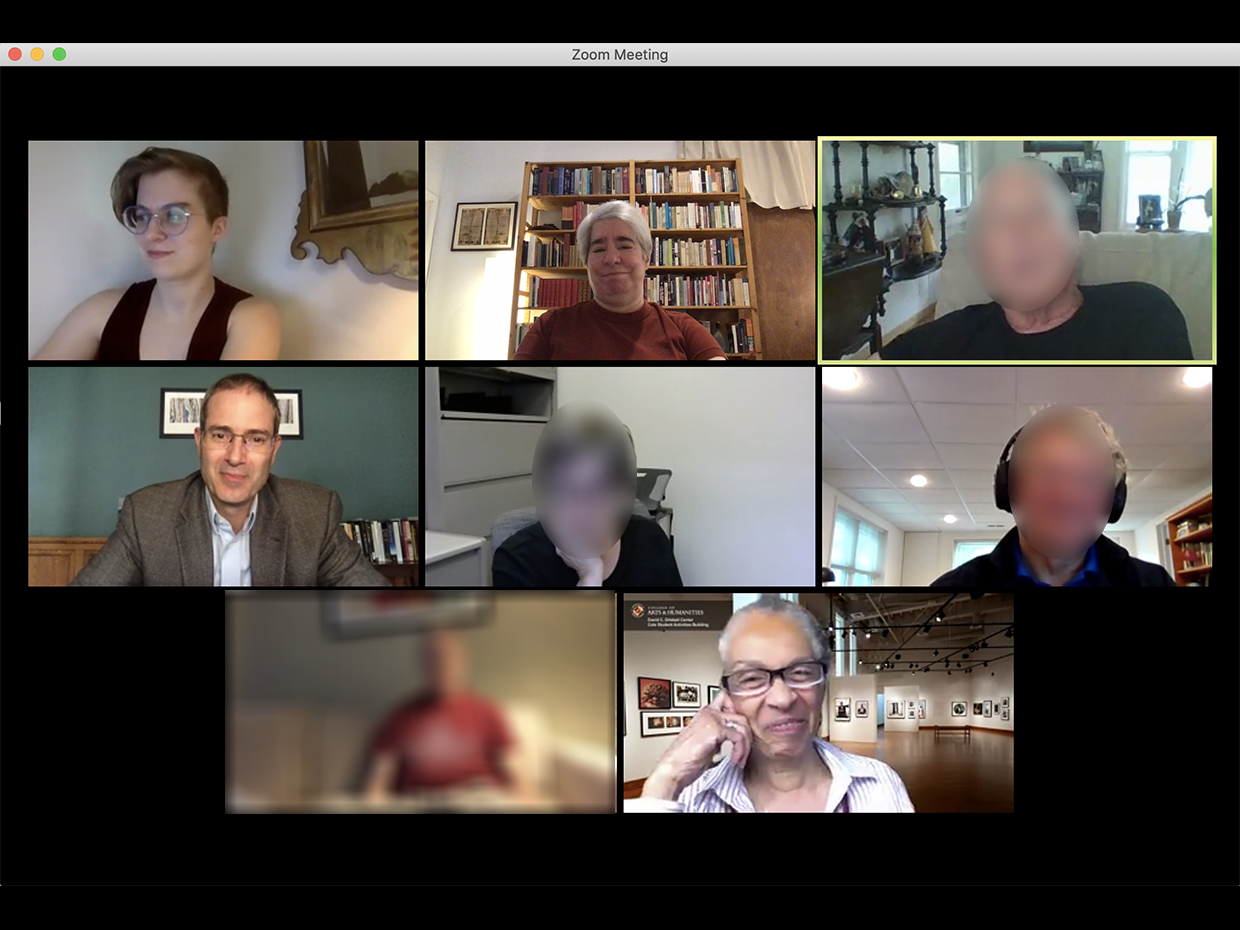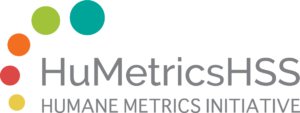Research
To advance the broad culture change that the HuMetricsHSS initiative envisions requires strategic focus on specific leverage points in the ecosystem of higher education. While we have been able to assess the needs of individual scholars and administrators through our workshops, we know that to provide transformative tools to departments, colleges, and universities, we will need to understand their specific contexts, beginning with the values that a discipline, department, or institution holds. To better understand both that local context and what those levers of change might be, we have conducted targeted interviews at each of the Big 10 Academic Alliance (BTAA) universities.


What we hope to understand through our conversation are the roles that are played in research and scholarly evaluation at each university and the current challenges to — and opportunities for — rewarding what is most valued.
At each university we spoke with those who are daily involved in metrics, evaluation, and impact: deans and other administrators (e.g., faculty affairs, research administration, diversity and inclusion), faculty (particularly those who serve on relevant committees in the faculty senate), librarians, and research evaluation managers. We have also reviewed institutional mission statements, statements of diversity, equity, and inclusion, and other “values-driven” documents already produced by these universities.
Now that our interview process has ended, we are writing a white paper that we hope will serve as a resource for sympathetic actors and provide greater transparency on the barriers that remain to enacting systemic academic change across institutions.
The first three sets of interviews took place in person prior to the onset of COVID-19, which subsequently curtailed travel.
- Michigan State University (conducted in person): October 16–17, 2019
- University of Maryland (conducted in person): November 22, 2019
- Penn State University (conducted in person): February 13, 2020
The final eleven sets of interviews were conducted virtually over Zoom over the course of 2020 and early 2021.
The white paper resulting from this research was published in February 2022 on both Humanities Commons and Manifold.
